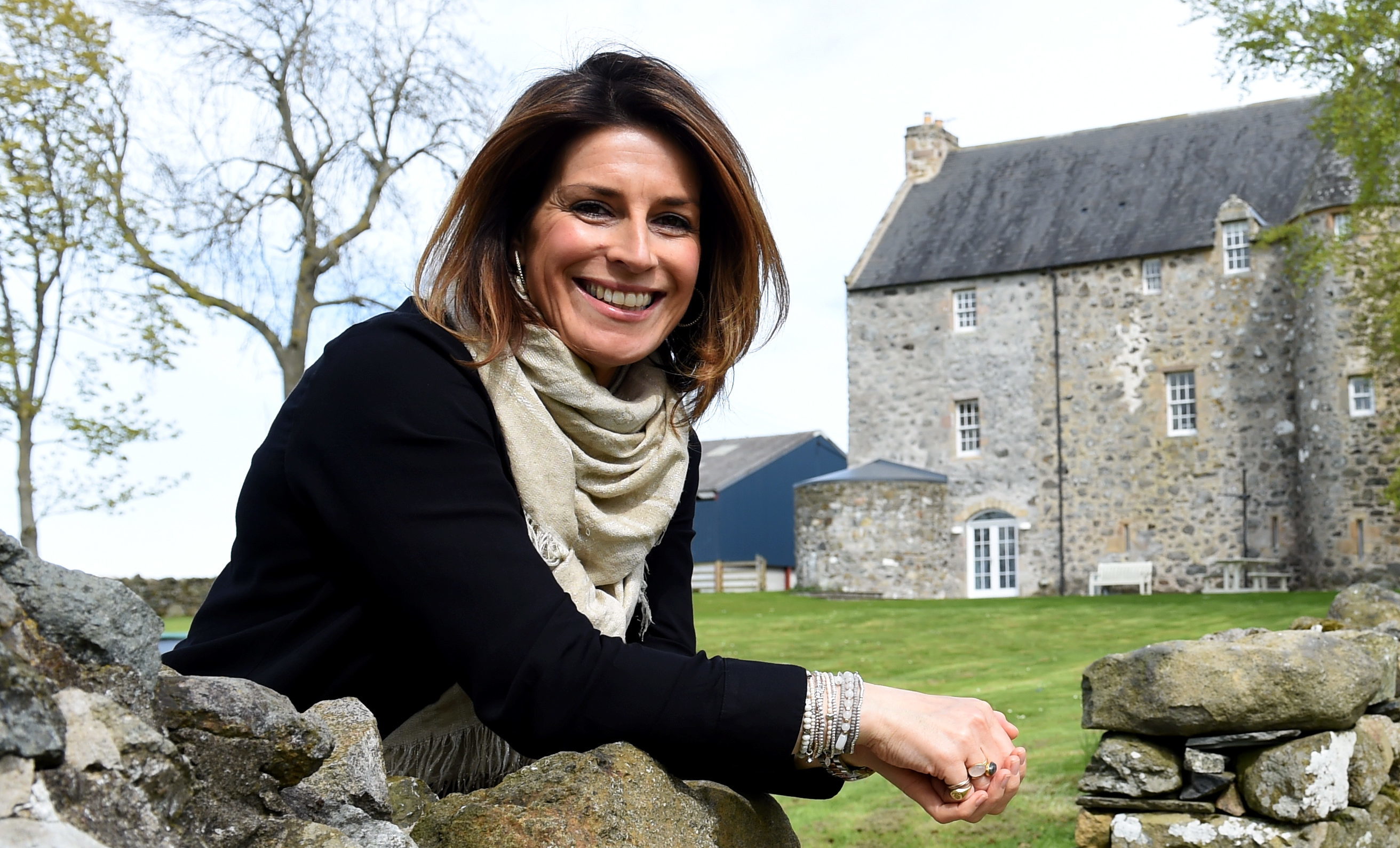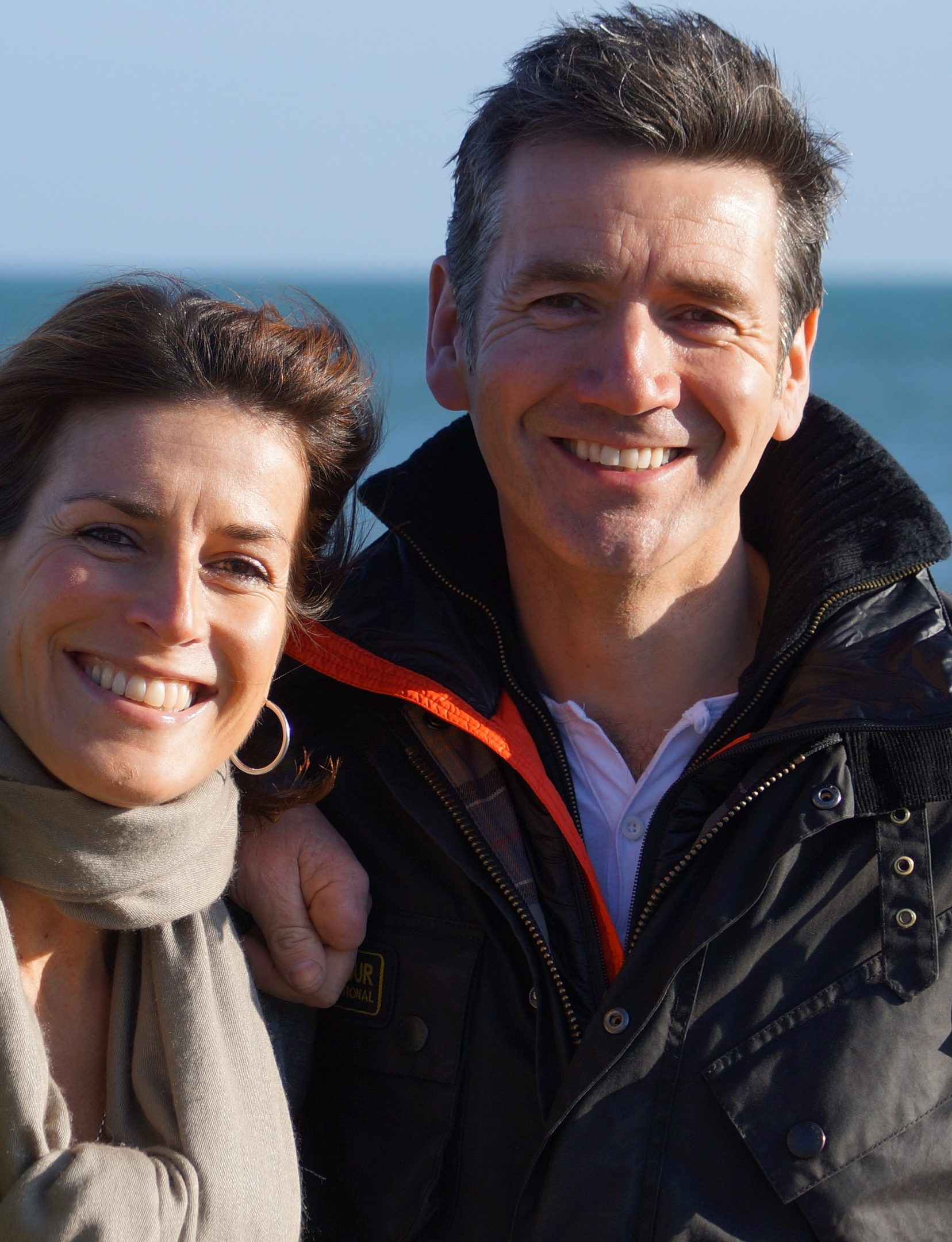
FORMER BBC Scotland presenter Sarah Mack has told how she left her job after discovering she was paid less than her male colleagues.
For a decade, she was the much-loved face of BBC Scotland’s popular countryside show Landward, but left just before the BBC’s equal pay row erupted.
The broadcaster – who still works with STV – says she was paid less than her male counterparts on the rural affairs show.
And while she chose not to rock the boat at the time, she feels it is right to speak out now to highlight the pay gap.
But she stresses there was no animosity and she is not bitter.
She is still in touch with her former colleagues and has no regrets about leaving the show.
The presenter and journalist, who lives with her husband, farmer David Stephen, and their four sons in 16th Century Barra Castle in Aberdeenshire, said: “I worked for the programme for many years and whenever I was trying to renegotiate my contract I was always told, ‘That’s the limit, that’s the pot’.
“Instead of pushing it, I would always say, ‘Oh that’s fine, it doesn’t matter.’
“But one of the reasons I left was because I knew there was a massive inequality.
“When I was renegotiating, it was beginning of last year, I got to a point where I thought, ‘No, I’ve done this for 10 years and I’m not adequately recompensed for what I do’.
“I thought if it was my daughter, I’d tell her to fight for it. So I said, ‘No, I believe I am worth more’.
“They said, ‘We don’t think so’ and walked away from me.
“Two months later the proverbial hit the fan at the BBC.
“If I’d known what was coming I may have made more of a song and dance about it.”
Sarah believes the industry now needs to open its eyes to the problem.
“There are massive anomalies between what men and women get paid and I’m sure there were with me. The problem with the broadcasting industry is that there is a huge cloak of secrecy.
“It’s an awkward thing to ask a colleague what they are getting paid and where they are placed. I know there was a gap. I had information that there was. It was a difficult time. I felt that, although there was rhetoric that I was valued, it was never reflected in what I earned.
“I chose to do it, so it was my choice and I have no regrets.
“But it came to a point where I felt it was a fight worth fighting. I felt, I know this is wrong, and I know I should have done this 10 years ago.”
Sarah, who left Grampian TV in 2003 to become a full-time mum before joining the BBC in 2007, says: “It is all to do with confidence and coming back into the workplace having had children.
“The environment doesn’t encourage you.
“I am a lot more vocal now. It’s the way you go about it as well. It’s the way you try to fight your corner and make sure you are treated the same. It is all down to confidence and knowing your worth.”
Her decision to leave Landward, presented by Dougie Vipond and Euan McIlwraith, was backed by David. She says: “My husband was very supportive. He just said, ‘Stand up for what you think is right’.
She says: “There are lots of other women out there who are waking up to the realisation that they maybe didn’t rock the boat when they should have done.
“But they are rocking it now. I am not hanging out the feminist flag. I just feel if I didn’t have the confidence, then there are lots of other women out there who lack it as well.”
The BBC’s gender pay gap row erupted last year when it revealed two-thirds of its stars earning more than £150,000 were male, with Chris Evans the top-paid raking in more than £2 million.
Claudia Winkleman was the highest-paid female celebrity, earning between £450,000 and £499,999 according to its 2016/17 annual report.
BBC director general Tony Hall admitted at the time that there was “more to do” on the issue.
It was the first time the pay of personalities earning more than £150,000 had been made public, after the BBC was compelled to reveal the information under the terms of its new Royal Charter.
The company’s China editor, Carrie Gracie, resigned her position in protest after learning men in similar roles were earning much more.
She later gave evidence to MPs, saying the BBC’s response to her grievance was “an insult”.
UK companies with 250 or more employees were required to publish their gender pay gap data – the percentage difference between average hourly earnings for men and women – on a government website by April 4.
Sarah said: “I was a very small fish in a big pond but I thought the timing of the issue – a couple of months after I left – was interesting. You take it up the ladder and it’s happening at every level of the corporation. And the gaps were massive.”
Sarah, currently back on our screens with the new series of STV’s popular The People’s History Show, is excited by the future.
Barra Estate boasts The Barn, a stylish wedding and event venue, along with luxury holiday homes and the Barra Berries farm shop.
She says: “I am a very positive person and I believe you can’t look back, you have to look forward. There is no point navel-gazing.”
Her verve for life is palpable.
“I love broadcasting,” she says. “I don’t see it as a hard job. But I didn’t progress. I didn’t move on from being a presenter.
“I would love to do more behind the camera and from a production point of view.”
A BBC Scotland spokesperson said: “We were sorry when Sarah decided to leave the programme as she was a highly regarded member of the presenting team.
“During the contract negotiations we offered an increase, but this was rejected and we were unable to meet Sarah’s subsequent demand for a further rise.
“We cannot disclose details of individual contracts for reasons of confidentiality, but Sarah was remunerated fairly in comparison with other presenters carrying out similar roles on the programme.”

Enjoy the convenience of having The Sunday Post delivered as a digital ePaper straight to your smartphone, tablet or computer.
Subscribe for only £5.49 a month and enjoy all the benefits of the printed paper as a digital replica.
Subscribe